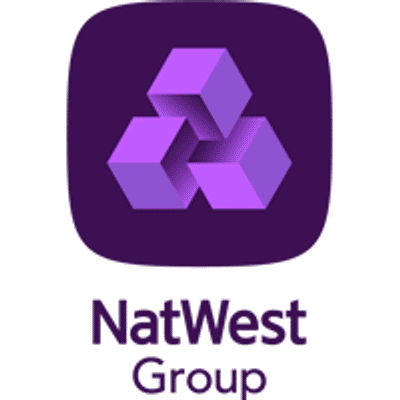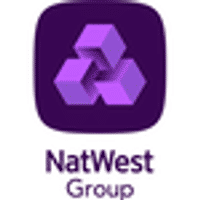Digital Transformations Graduate Review
at NatWest Group
Graduate Scheme
Business Management, Business Operations, Project Management, UX/UI Design
Manchester
Review Submitted: October 2025
Overall Rating
4.6 /5
The Overall Rating is the average of all the ratings given in each category. We take those individual ratings and combine them into one final score!
Overview of the Role
Overall, how would you describe your experience at NatWest Group?
One of the most inspiring aspects has been meeting senior leaders who began their careers on the graduate scheme—it’s a clear reminder of the opportunities available. The scheme offers a solid foundation and can absolutely set you up for a successful career within a large bank. However, it’s not a passive journey. While there is guidance and support, achieving the role or level you aspire to requires initiative, drive, and a willingness to go above and beyond. Fortunately, there are plenty of resources and people willing to help those who are proactive in shaping their own path.
What are the main responsibilities of the role and which elements of the role do you enjoy the most?
- Data visualisation and analysis, using various software tools I upskilled on during the scheme. Much of this work focused on identifying customer trends and making data-driven recommendations.
- Webpage design, where I learned to use our internal platform to create and update customer-facing pages.
- Customer communications, including drafting mobile prompts and emails, and navigating the full governance process to ensure they met all compliance standards.
-Project work, where I contributed to larger initiatives and had the chance to present my findings to senior leaders within my area.
These experiences gave me a broad skill set, but what I enjoyed most was the variety and the ability to see the real-world impact of my work—especially when using data to influence decisions or improve customer journeys.
To what extent does your role give you the opportunity to contribute meaningfully and feel valued by your team?
In contrast, during my first placement, I felt this less strongly. At that stage, I was still building foundational knowledge and skills, so it was more about learning than delivering. That said, the experience was still valuable in setting me up for future success.
As the programme progresses, you naturally gain confidence and capability, which allows you to take on more responsibility, contribute to larger pieces of work, and start owning deliverables. That’s when the sense of purpose and value really starts to grow.
How does your compensation package - including perks & benefits - fairly remunerate you for the work you do?
What also stood out to me was the balance between compensation and the learning experience. I was given a lot of time and support to develop, and in the early stages, I felt I was being paid on par with peers in permanent roles at other jobs/companies, even though I was still very much in a learning phase with relatively low pressure.
On top of that, the culture around work-life balance is excellent. The 35-hour work week is respected, and there’s no expectation to work beyond that, which really enhances the overall value of the package.
How well do you feel the role is preparing you for your future career?
What’s been especially valuable is the balance between structured learning and hands-on experience. I’ve had the space to upskill, but also the opportunity to apply what I’ve learned in meaningful ways. As I progressed through the scheme, I was trusted with more responsibility, which helped build my confidence and gave me a clearer sense of the kind of work I enjoy and want to pursue long-term.
Overall, I feel well-equipped to take the next step in my career, with a strong foundation and a clearer direction for where I want to go.
How would you rate the extent to which you were developing new or existing skills through formal training and your day-to-day role?
This flexibility was great for tailoring learning to your own pace and needs, but it did mean that structured, mandatory training was limited. Most of my growth came from on-the-job experiences—working on real projects, collaborating with different teams, and learning by doing. That said, the breadth of optional resources meant that if you were proactive, there were plenty of opportunities to deepen or broaden your skill set.
Experience & Company Culture
How is the support you receive?
How is your work-life balance?
There’s also a strong emphasis on wellbeing, with access to support resources and flexibility when needed. Overall, I’ve felt trusted to manage my time effectively, and that’s made a big difference to both my productivity and overall experience.
What is the organisational culture, values and general atmosphere like?
The atmosphere is collaborative and respectful—people are approachable at all levels, and there’s a real sense of psychological safety, which makes it easy to ask questions, share ideas, and learn. The values of integrity, inclusion, and sustainability aren’t just words on a wall—they’re reflected in the way teams operate and the priorities the business sets.
Overall, it’s a positive and empowering environment, especially for early careers. You’re encouraged to grow, take ownership, and contribute meaningfully, all while maintaining a healthy work-life balance.
How would you rate NatWest Group initiatives when it comes to equality, diversity, inclusion and accessibility?
Employee-led networks play a big role in fostering inclusion, and there’s visible support from senior leadership for creating a workplace where everyone feels they belong. Accessibility is also taken seriously, with adjustments available for those who need them and a genuine willingness to listen and improve.
While there’s always more that can be done, the intent and action are definitely there, and it feels like a company that is actively working to create a fair and inclusive environment for all.
How would you rate NatWest Group CSR (Corporate Social Responsibility) initiatives?
There are regular opportunities for colleagues to get involved in volunteering, fundraising, and community outreach, and these activities are genuinely encouraged and supported by the business. The bank’s focus on climate and social responsibility also comes through in its wider strategy, with clear goals around reducing environmental impact and promoting inclusive economic growth.
Overall, CSR doesn’t feel like a tick-box exercise—it’s embedded in the culture and values of the organisation, and you can see the real-world impact of the initiatives being delivered.
Recommendations & Advice
Would you recommend NatWest Group to a friend?
Why?
The culture is inclusive and people-focused, with a genuine emphasis on work-life balance and wellbeing. You’re given the tools and support to grow, but also the freedom to shape your own path. If you’re proactive and curious, there’s a lot of opportunity to make the most of it.
How well did the role match your expectations based on the recruitment process?
However, one key element that didn’t materialise was the opportunity to complete a professional qualification as part of the programme. This was something that was advertised when I applied and was a factor in my decision to join. Unfortunately, it was never offered and has since been removed for future cohorts. That was disappointing and is the main reason I would rate the experience 4 stars rather than 5.
That said, the scheme still provided a strong foundation, with plenty of opportunities to develop skills, explore different areas of the business, and shape my own career path.
When considering the recruitment & onboarding process, have you any specific tips or advice you would give to others applying to NatWest Group?
For the recruitment stage:
Use the STAR technique (Situation, Task, Action, Result) when answering interview questions. It helps structure your responses clearly and shows how you’ve handled real-life situations.
Do your research on the bank’s strategy, values, and current initiatives—especially around sustainability, inclusion, and customer outcomes.
Don’t worry if you don’t have a finance background—they’re more interested in your potential, mindset, and willingness to learn.
For onboarding:
Be proactive—the more you engage with your placements and seek out opportunities, the more rewarding your experience will be.
Connect with the graduate community—it’s a great support network and a helpful way to learn from others on the same journey.
















